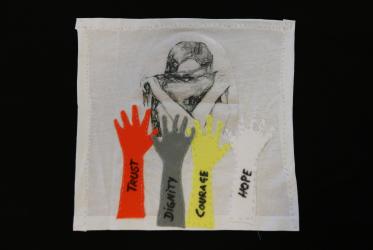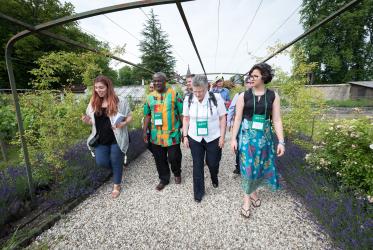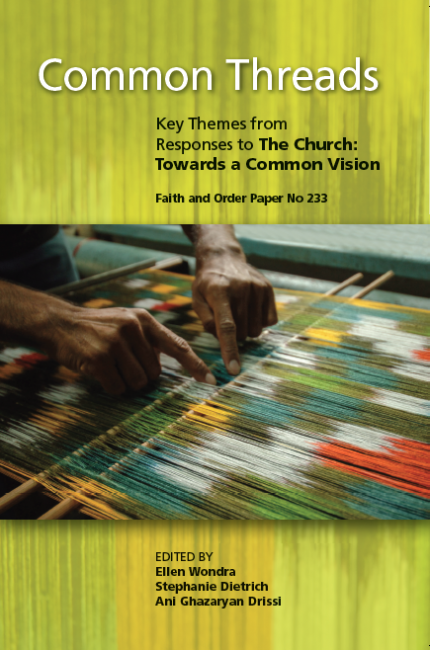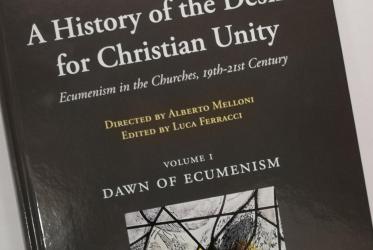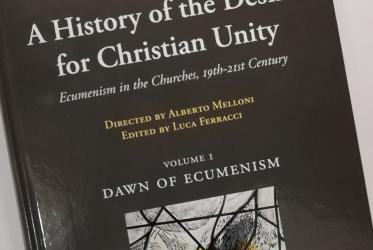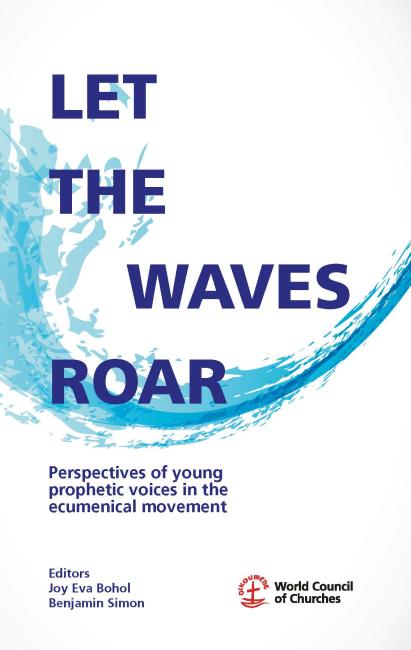Displaying 121 - 140 of 462
Now available: “The Journey of the WCC from Busan to Karlsruhe”
28 February 2022
Pilgrims on the Path of Peace
The Journey of the WCC from Busan to Karlsruhe (Unillustrated)
28 February 2022
Common Threads
Key Themes from Responses to The Church: Towards a Common Vision. Faith and Order Paper No 233
25 February 2022
Thursdays in Black Valentine’s Day message: Love heals, not hurts
14 February 2022
WCC honoured with Geneva Engage Award
01 February 2022
"Out of the Shadows" toolkit now available in French and Spanish
20 January 2022
Let the Waves Roar
Perspectives of Young Prophetic Voices in the Ecumenical Movement
19 December 2021
